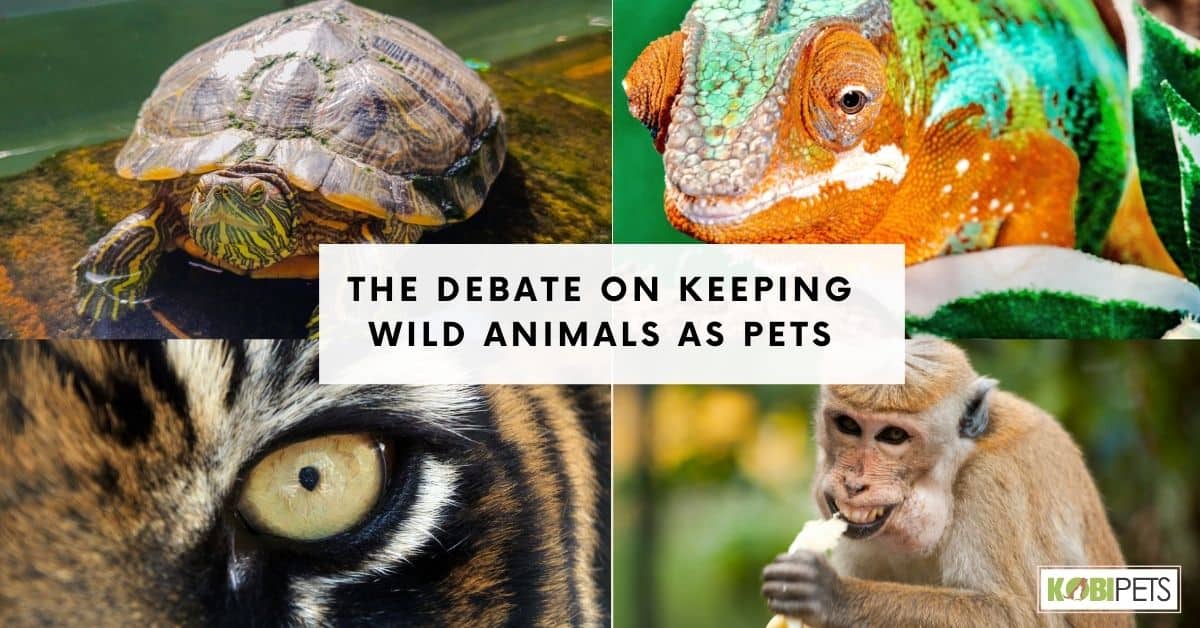
Keeping wild animals as pets is an increasingly popular trend, with some people choosing to keep exotic and potentially dangerous creatures in their homes. While there are potential benefits to keeping a wild animal as a pet, there are also many risks involved that must be considered before taking on this responsibility.
This article will explore the debate surrounding keeping wild animals as pets, the benefits, risks, and regulations involved. By considering all aspects of keeping wild animals as pets, individuals can make a more informed decision on whether or not it is something they are willing to take on.
Wild Animals as Pets
Keeping wild animals as pets is an increasingly popular trend, however, it is important to be informed about the implications of this decision. Wild animals differ from pets in many aspects, aside from their temperaments, as they will lack the same amount of domestication.
Animals may also have unique dietary needs or territorial habits that may put your family or home in danger. Additionally, wild animals often carry zoonotic diseases which can spread to humans and other animals as well.
It is essential to conduct extensive research and consultation with a veterinarian that specializes in exotic species before deciding if owning a wild animal is right for you and your family.
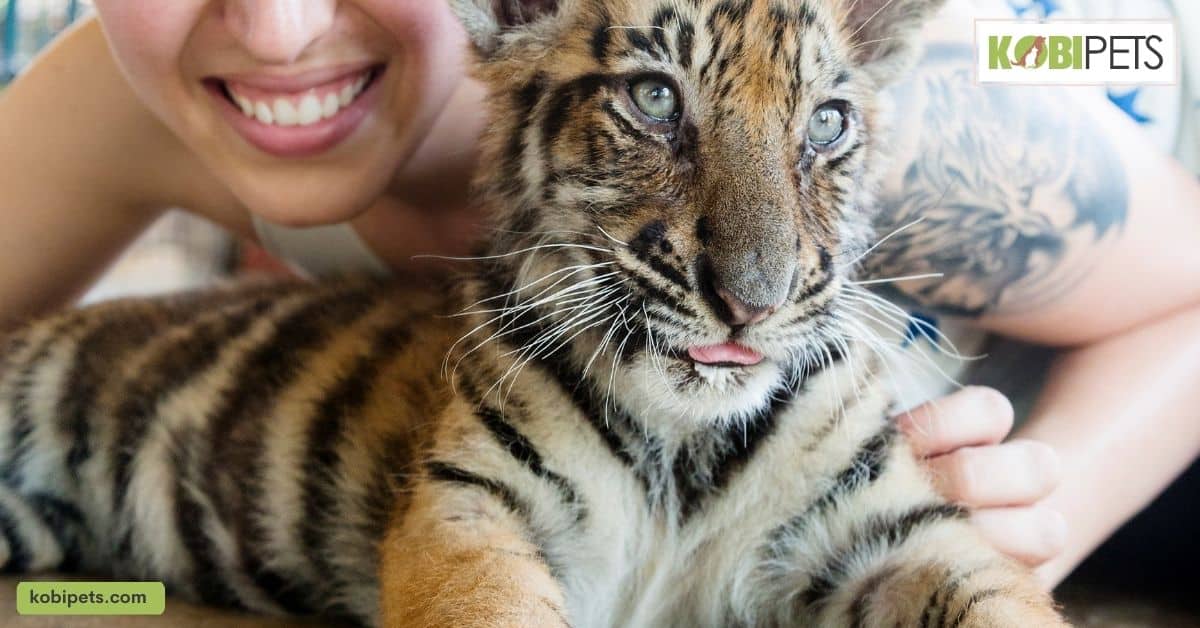
Should Wild Animals be Kept as Pets?
Keeping wild animals as pets presents a complex moral issue that must be addressed. On one hand, if housed in suitable conditions and given the correct care, many wild animals can make wonderful pets; they are often very intelligent and endearing, and even have the potential to form close bonds with their owners.
On the other hand, most wild animals fare poorly when kept in captivity. They are extremely difficult to care for properly since their dietary needs and space requirements differ from those of domesticated pets.
Potential dangers for the animal’s owner:
- animal bites
- attacks
- diseases transmitted from animals to humans are all possible outcomes when keeping a wild animal as a pet.
In general, it is much better to observe wildlife where they live in nature rather than attempting to keep them as pets.
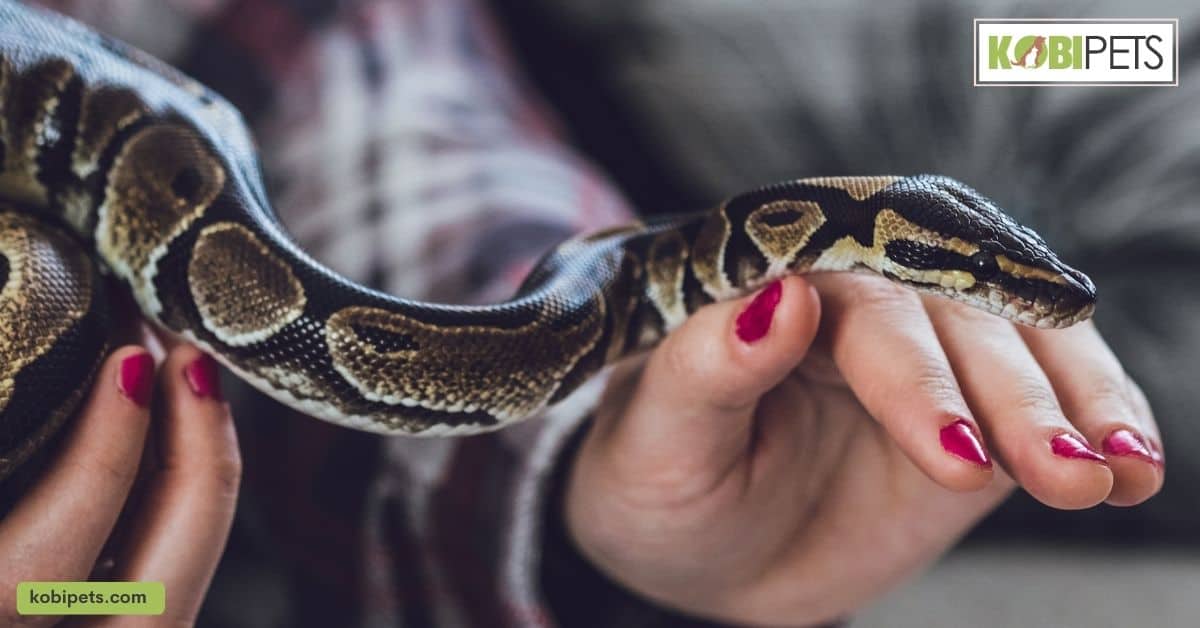
Types of Wild Animals That Can Be Kept as Pets
There are many types of wild animals that can be kept as pets, although the legality and ethical considerations of owning certain species vary. Some of the most commonly kept wild animals as pets include:
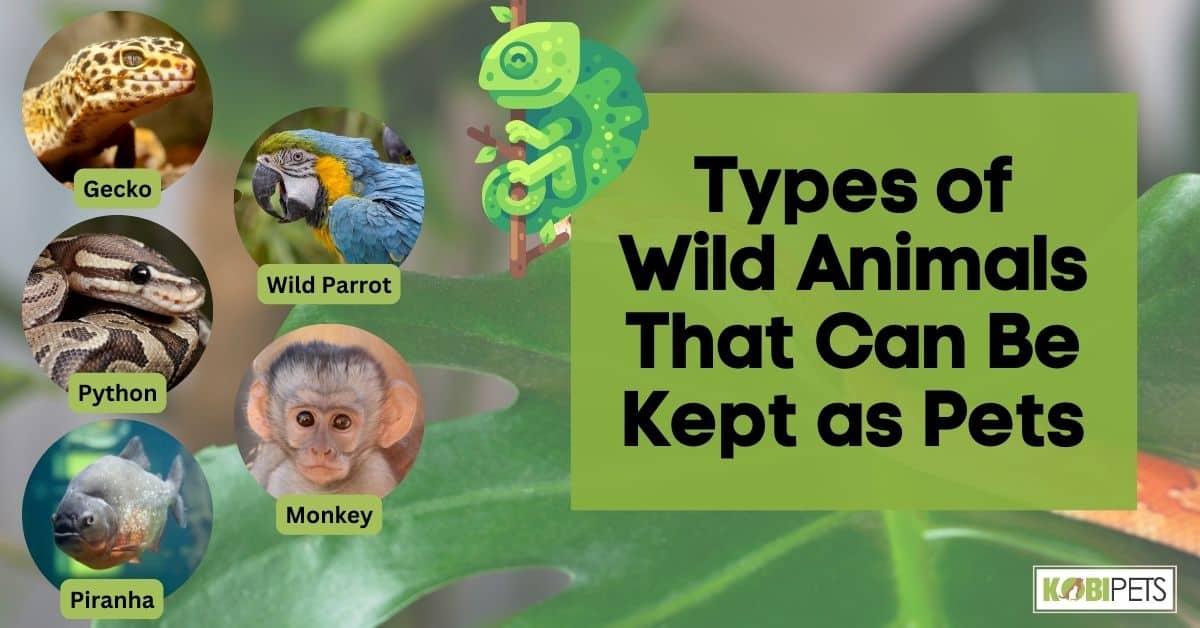
Types of Wild Animals That Can Be Kept as Pets
Exotic Birds
Exotic birds are popular pet choices due to their attractive colors and interesting personalities. They can also be easy to care for if the proper research is done before purchasing them, as each species has unique dietary and environmental needs. However, exotic birds may require a large investment in terms of time, money, and space. Here are the types of exotic birds that can be kept as pets:
- parrots
- macaws
- cockatoos
- lovebirds
- finches
Reptiles
Reptiles are a popular choice for pet owners due to their unique habits and low-maintenance needs. Reptile care is quite specialized and requires much research before taking on the responsibility of owning one. Proper housing, diet, and environment need to be provided to ensure the health and safety of the reptile. Common pet reptiles include:
- snakes
- lizards
- turtles ball python
- leopard gecko
- red-eared slider turtle
Amphibians
Amphibians can make interesting and unique pets that require specialized care. Amphibian habitats must include a damp environment with suitable temperature, light, and pH levels to ensure their health and well-being. Some examples of amphibians kept as pets are frogs, salamanders, and newts. Common pet amphibians include:
- frogs
- salamanders
- axolotls
Fish
Fish are often popular choices for pet owners due to their relatively low-maintenance needs. They require special tanks and filters that need to be constantly monitored in order to keep the water clean and suitable for the fish. Fish diets must also be carefully considered, as some species may require more specialized foods than others. Here are the types of exotic fish that can be kept as pets:
- piranhas
- electric eels
- tropical fish
- cichlids
Small mammals
Small mammals require regular handling, socialization with other animals of the same species, suitable enclosures, and specialized diets to ensure optimal health and well-being. Popular small mammals pets include:
- ferrets
- sugar gliders
- hedgehogs
- hamsters
Invertebrates
Invertebrates are animals without backbones and are often kept as exotic pets due to their unique behaviors and appearances. They require specialized care, such as specific temperatures and humidity levels in order to thrive. Popular invertebrate pets include:
- insects
- spiders
- tarantulas
- snails
- other invertebrates
It’s important to note that the possession of wild animals as pets may be illegal in some areas, and many species are protected by international laws and conventions.
Additionally, wild animals can require very specialized care that may not be suitable for most pet owners. Before getting any wild animal as a pet, it is important to research the specific care needs of the species, as well as the legal requirements for owning it.
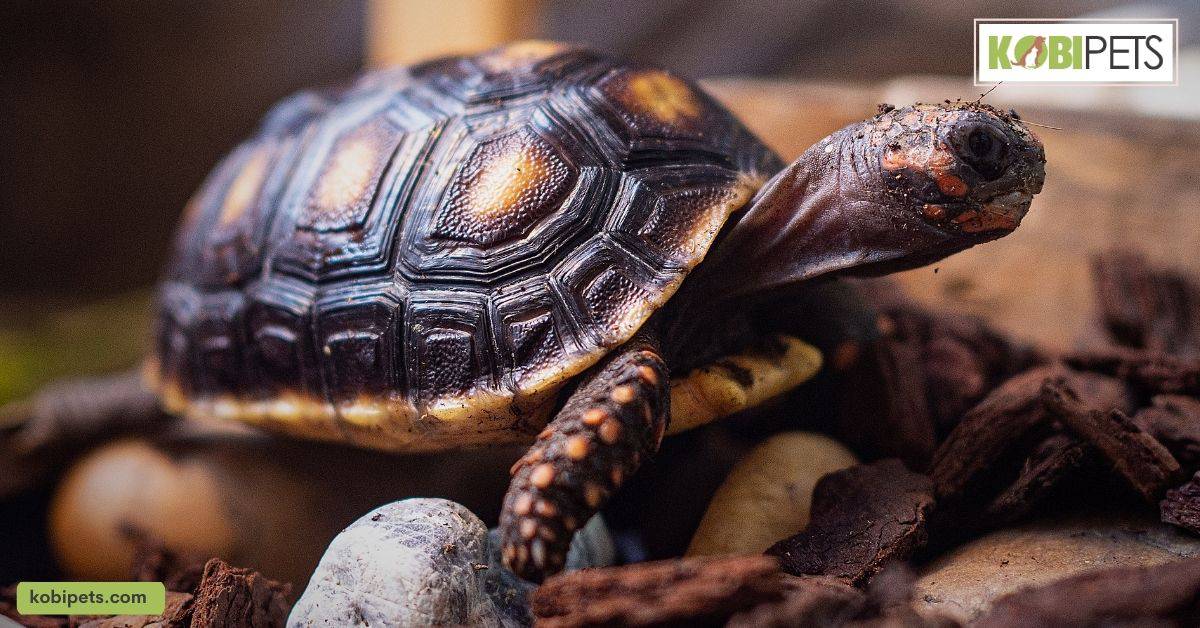
Benefits of Keeping Wild Animals as Pets
Keeping wild animals as pets can bring a unique and thrilling experience to one’s life, however, the many possible risks should always be considered before taking the plunge. Exotic creatures such as lions, tigers, and monkeys are known for possessing heightened senses and their own unique personalities, which a more traditional pet like a dog or cat might not have.
Additionally, taming wild animals can immensely benefit their well-being as they’re usually left in unsuitable habitats due to the loss of the natural environment. Adequate care by an experienced owner can provide these creatures with a safe home along with plentiful supplies of food and affection. Despite these potential benefits, great caution and deliberation should be taken before becoming an exotic pet owner as the animal could potentially harm itself or others if not properly tended to.
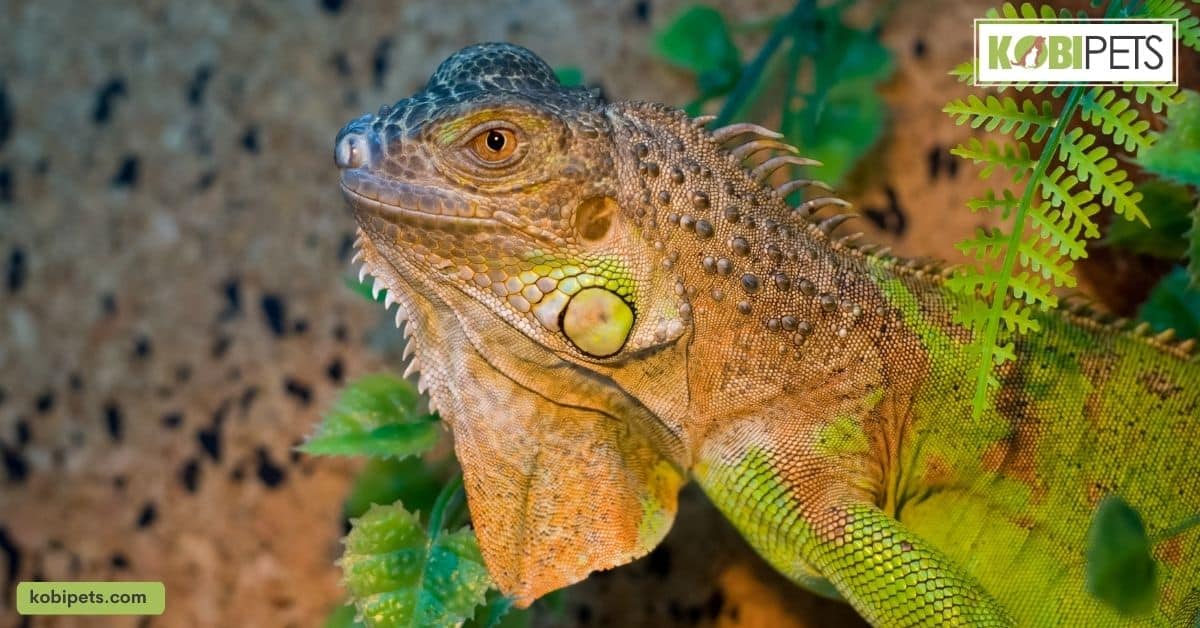
Pros and Cons of Keeping Wild Animals as Pets
Keeping wild animals as pets is an increasingly popular trend, however, it is important to be informed about the implications of this decision. Wild animals require special care and may pose potential risks to both the owner and their environment. Before deciding whether or not owning a wild animal is right for you, consider the pros and cons that come with such a responsibility.
| PROS | |
| Unique Experience | Wild animals have heightened senses and their own personalities, which can be a thrilling experience for the owner. |
| Animal Welfare | Adequate care from an experienced owner can provide wild creatures with a safe home along with plentiful supplies of food and affection. |
| Education | Owning certain species of wild animals can provide an opportunity to learn about their behaviors, habitats, and needs. |
| CONS | |
| Risk of Injury | Wild animals may not always be domesticated enough to trust humans and other pets, posing a risk of injury or aggression. |
| Potential Danger | Wild animals can be unpredictable and potentially dangerous to the owner or their environment. |
| Cost | Keeping wild animals as pets can be expensive due to the additional cost of specialized supplies, housing, and veterinary care. |
| Specialized Care | Many wild species require specialized care that may not be suitable for most pet owners. |
| Regulations | Possessing certain species of wild animals may be prohibited in your area or internationally, so it is important to research the legal requirements before taking on this responsibility. |
| Environmental Damage | Wild animals can cause damage to their environment if not properly cared for, which can have lasting effects on the ecosystem. |
Deciding whether or not to keep a wild animal as a pet requires an immense amount of research, deliberation, and consideration of the potential risks involved. While this responsibility may bring a unique experience to those willing to take it on, great caution should be taken before becoming an exotic pet owner.
Risks Involved in Keeping Wild Animals as Pets
Keeping wild animals as pets presents huge risks for the animal, their carers, and the wider community. Wild animals have significant physical and emotional needs that can be difficult or impossible to meet when living in a home environment.
These requirements can include:
- an appropriate diet
- necessary veterinary care
- structured activities to stimulate mental health.
If these needs are not met, it may result in physical illness and poor mental well-being. Additionally, there is a risk that they may become aggressive, defensive, or anxious – especially if they are caged – presenting a danger to their caregivers and the wider community.
Finally, if wild animals escape or are released into the wild by their keepers there is a risk of them causing harm to local ecosystems through competition with indigenous species for food or territory. Ultimately, keeping wild animals as pets should only be considered with utmost caution and responsibility by all sides involved.
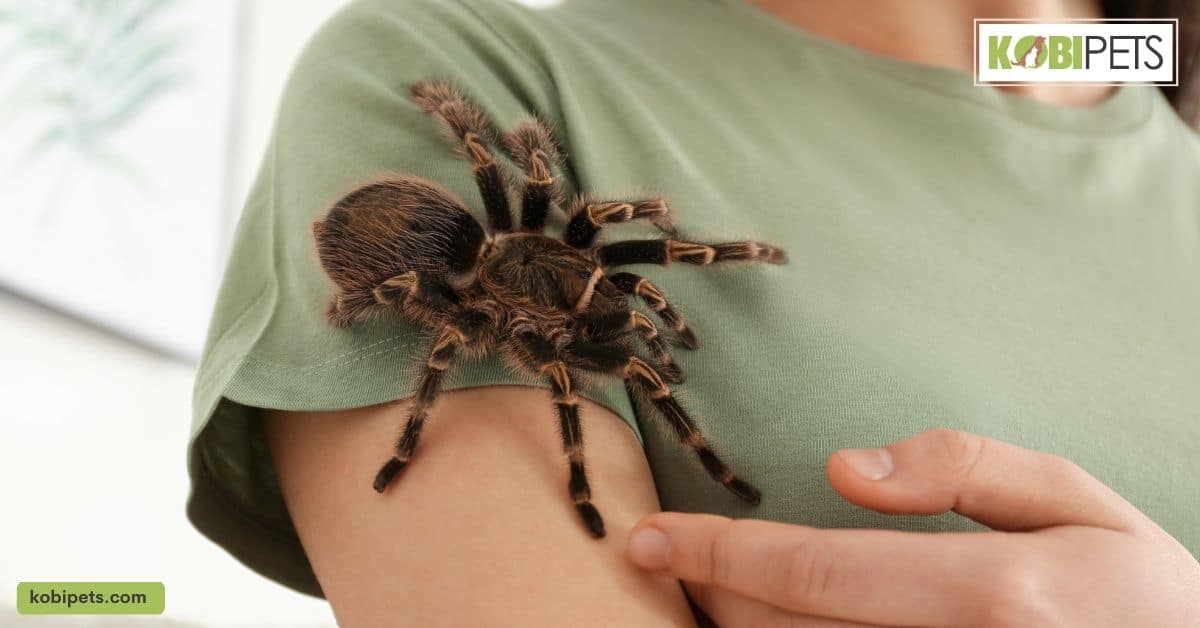
Ethical Considerations Around Keeping Wild Animals as Pets
Keeping wild animals as pets raises a number of ethical considerations, both for the animals themselves and for the people who keep them. Some of the most significant ethical issues include:
- Habitat destruction: Many wild animals are taken from their natural habitats to be kept as pets, which can lead to the destruction of those habitats and the displacement of other animals.
- Animal welfare: Wild animals kept in captivity may not have access to the same resources and opportunities that they would have in the wild. This can lead to physical and psychological distress, which can negatively impact the animal’s welfare.
- Safety concerns: Wild animals, even if they are raised in captivity, can pose a danger to humans and other pets. They may have natural instincts to hunt, bite or attack and may not be suitable to live in a domestic environment.
- Inappropriate care: Wild animals often require specific care that is not suitable for most pet owners. Many people may not be equipped to provide the necessary care, which can lead to neglect and mistreatment of the animal.
- Impact on wild population: Removing animals from the wild for captivity can have a negative impact on the wild population of the species.
- Lack of socialization: Many wild animals are solitary by nature and may not be able to socialize with humans or other animals. This can lead to isolation and stress for the animal.
- Lack of genetic diversity: Captive breeding can result in inbreeding and lack of genetic diversity, which can have negative effects on the health and survival of the species.
Overall, keeping wild animals as pets raises a number of ethical concerns that should be carefully considered before making the decision to bring one into your home.
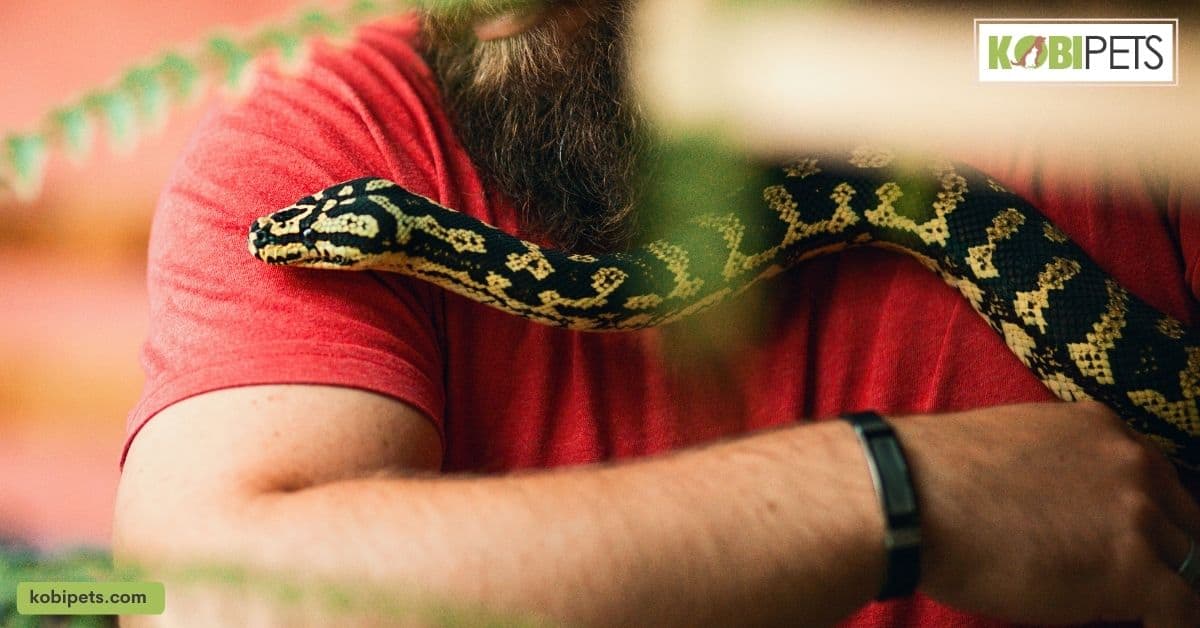
Regulations and Laws Around Keeping Wild Animals as Pets
Keeping wild animals as pets is regulated by both state and federal laws, which vary depending on the species and location. The Animal Welfare Act of 1966 protects certain wildlife from inhumane treatment but does not necessarily regulate their ownership; while many states have additional laws governing private pet ownership of wild animals.
Generally, each state or local municipality has its own regulations that must be followed to legally possess a wild animal as a pet. Some of these laws include requiring a permit, proof of an enclosure meeting certain standards, and liability insurance. Additionally, some species are protected by international laws or conventions, making them illegal to own in any circumstance.
It is important to research the local laws and regulations before attempting to keep a wild animal as a pet, or risk facing legal action. Additionally, some veterinarians may refuse to treat certain species of wild animals due to the potential for danger or their special care requirements.
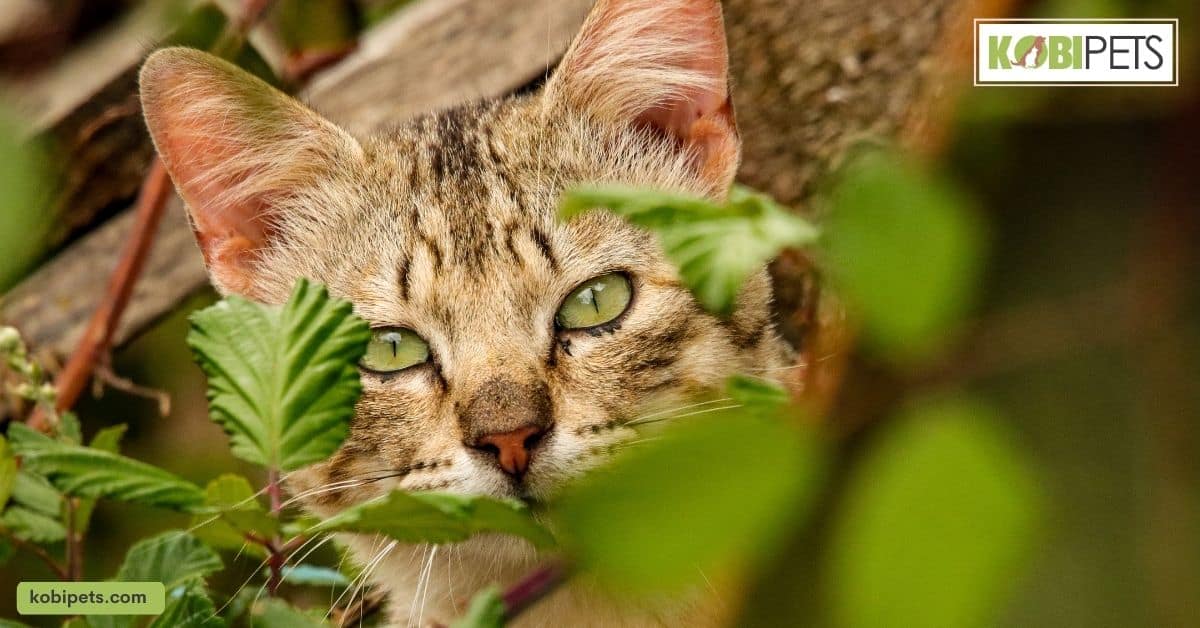
In Conclusion
Keeping wild animals as pets is a popular trend that can bring a unique and thrilling experience to one’s life. However, there are many risks and ethical considerations involved that must be taken into account before making such an important decision.
Additionally, the possession of certain species may be illegal in some areas, so it is important to research the local laws and regulations before attempting to keep a wild animal as a pet. By considering all aspects of keeping wild animals as pets, individuals can make a more informed decision on whether or not it is something they are willing to take on.






